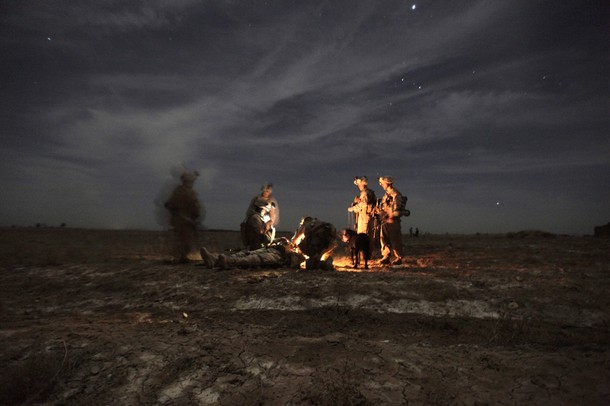If there is one strategic weakness or Achilles’ heel in U.S. geostrategic thinking, it is a fixation with winning battles and not winning wars.
The North Vietnamese famously crowed, “America won every battle and lost the war.” In Afghanistan and Iraq four decades later, the same critique applied. America and the coalition won virtually every battle.
But if winning the war meant establishing a safe, secure and stable state under the rule of law, by any definition the United States and its allies have lost in both countries.
How did this happen? What has transformed or metastasized U.S. strategic DNA and thought to emphasize winning battles above winning wars?
Are wars today, when like conventional forces no longer meet on the battlefield in combat, winnable by military means alone if they ever could be, thus reinforcing the need to focus on battles?
Or does the fault lie elsewhere perhaps with electing leaders who are largely inexperienced and unready for the demands of high office and become seduced by the ease with which battles can be won militarily and ignore the need to win wars?
The United States won independence from England not because it won every battle, which it surely didn’t, but by concentrating on winning the war — a strategy purloined by North Vietnam.
Other than the War of 1812 and the Civil War, until 1917, American wars were against relatively weak adversaries from ill-equipped Indians in the west to the Spanish in Cuba and the Philippines.
In World War II, the United States set unconditional surrender as the basis for winning the war. America didn’t win every battle — merely enough at the right time and place so that its overwhelming economic and industrial might, buttressed with two nuclear bombs, overpowered the enemy and won the war.
And while veterans of that war would continue to serve in high office for more than four decades, psychological mission creep gradually metastasized into the fixation with winning battles and not wars.
Korea marked the beginning of fixating on battles not wars by making the aim re-establishing the borders between north and south at the 38th parallel. In the Cold War, the concept of winning wars was challenged by the massive if not societal destruction that would follow in a war that could escalate to using thermonuclear weapons. In a sense, deterrence had to work and that became the battle.
As the United States inched and then plunged into Vietnam under Presidents Kennedy and Johnson, the generals of that war had served in World War II and Korea. In those wars, the battlefield tactic was to employ overwhelming firepower to destroy the enemy.
In Vietnam, Search and Destroy missions relied on firepower from artillery and fixed-wing fighter-bombers and helicopter gunships to defeat and destroy the largely invisible and elusive Viet Cong and North Vietnamese army. Body counts became the war’s metric and the obsession of winning battles to attrite the enemy was the strategy.
Killing one’s way to victory rarely works. And the United States lost.
After the Vietnam War and as the Soviet Union increased its conventional forces, the United States turned to technology and precision or “smart” weapons to offset conventional military numerical inferiority. Winning “the first battle” became doctrine because if the first battle were lost, the belief was that the Soviets would quickly overrun and occupy Western Europe.
The wars in Iraq in 1991 and 2003 and in Afghanistan in 2001 were indeed extensions of winning the first battle. Saddam’s army was twice eviscerated and the Taliban routed in matters of hours and days.
Tragically, George W. Bush’s White House, unlike his father’s in the first Gulf War, became infatuated with winning the battle and failed to think about winning the war. So, as in Vietnam a generation earlier, every battle was won and both wars were lost.
This failure to focus on winning wars was not unique to Republicans. Bill Clinton did no better in Serbia in 1999 when it took 78 days to force a tin pot dictator to withdraw from Kosovo — a battle that if fought as a war should have taken hours to win. Yet, NATO had no stomach for even threatening the use of ground forces until Week 10 of the conflict.
Today, the Obama White House has succumbed to ignoring the differences between fighting battles and winning wars.
Libya was a battle. Who knows what will happen in Syria or in Iran and North Korea.
Limited uses of force through no fly zones and safe havens in Syria as well as pre-emptive airstrikes to eliminate Tehran’s nuclear facilities are routinely debated as options.
Tragically, this returns to the failure to think about wars and not battles first. But will the United States learn?
Harlan Ullman is senior adviser at the Atlantic Council, and chairman of the Killowen Group that advises leaders of government and business. This article was syndicated by UPI.
Image: US%20soldiers%20in%20Afghanistan%20Feb%202010.jpg
